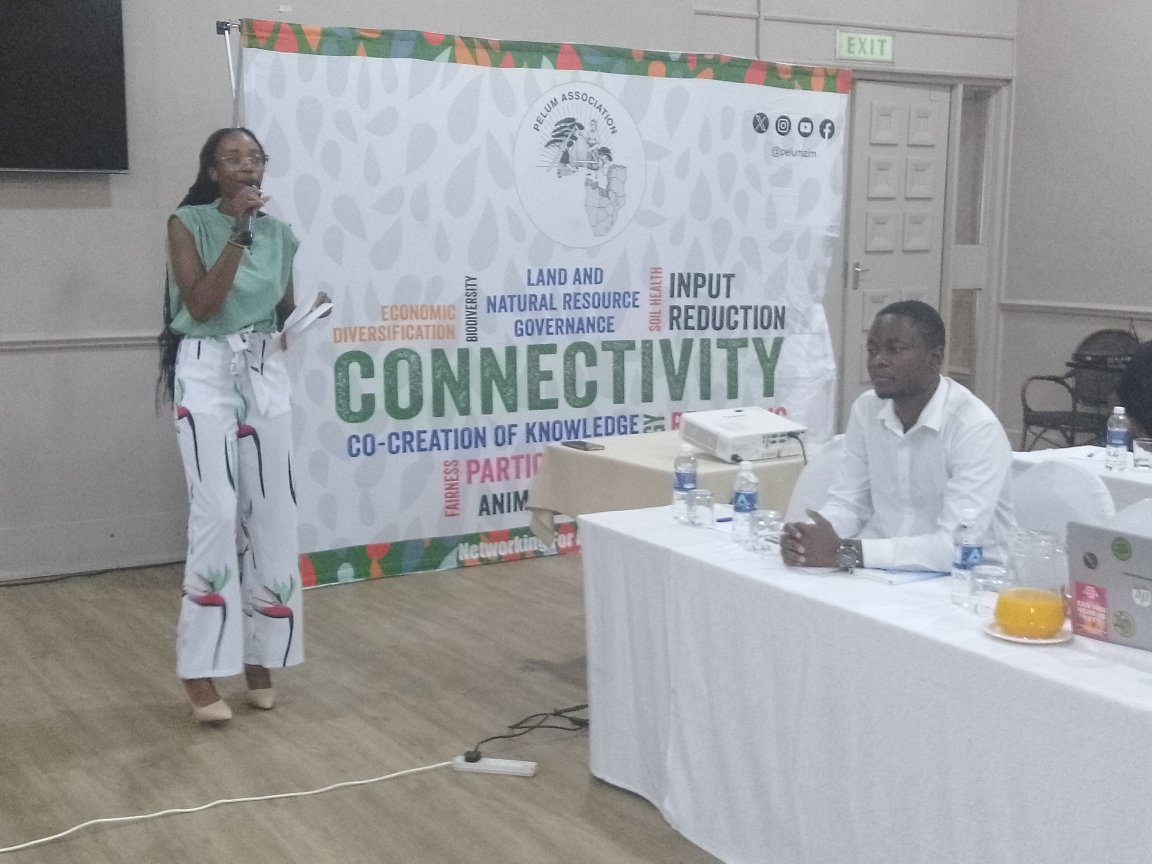|
Getting your Trinity Audio player ready...
|
The youth bear the brunt of vulnerability to climate change hence engaging and empowering them in promoting agro-ecology, sustainable farming practices, and advocating for climate justice is crucial for building resilient and sustainable food systems in the country.
This emerged today at a symposium by the Young Volunteers for the Environment (YVE) in partnership with the Participatory Ecological Land Use Management (PELUM) Zimbabwe running under the theme “Youth Empowerment for Climate Justice in Zimbabwe: Harnessing the Power of Agro-ecology for Climate Resilience in Zimbabwe during the El Nino season and beyond.”
Zimbabwe, like many other countries, is experiencing the adverse effects of climate change. Despite contributing only 0.07% of the global greenhouse gases, the frequency and magnitude of climate-related phenomena are anticipated to increase. In 2019, the country experienced one of the most devastating cyclones, Cyclone Idai affecting approximately 270,000 people and leaving 340 people dead and many others missing.
In 2023, cyclone Freddy also made landfall in Zimbabwe, leaving behind significant destruction and damage. Currently, the country is facing an El Niño, which could significantly further impact the current agricultural season, posing threats to food security and livelihoods, particularly in rural communities where agriculture is a primary source of income and sustenance.
During the workshop, it emerged that several agroecological agriculture practices are being practiced in Zimbabwe in the face of climate change and climate change-related phenomena such as the impending El Nino.
Chengeto Muzira, a farmer from Mutoko, said young people are realizing that the weather patterns experienced over a long period are changing. The wells are drying up, crops are wilting, and there are no harvests.
Another young farmer, Primrose Tunhuma said climate change affects youth economically.
“Jobs in agriculture are affected. Other companies use farm produce like maize as raw materials. Livestock like chickens experience heat stress. This leads to lower production. Cattle die. We need agroecological practices to guard against these challenges,” Muzira said.
Bineloge Blessing from Chimanimani says climate change leads to the vulnerability of youth. The place used to receive rainfall. In another part of Chimanimani, Nyanyadzi, sorghum dried up despite being a drought-tolerant crop. Due to drought, trees did not flower, thereby affecting the production of beekeeping. Rivers and dams are dry and it affects fish farming. Girls and young women are getting married off at a young age. The burden for women increases. They travel long distances to fetch water and acquire food.
El Nino has affected the predictability of rainfall patterns. The Zimbabwean economy is anchored on agriculture hence climate change negatively affects livelihoods.
Odilo Linzi, the Founder, and Director of Orleans Waste Management and Services said agroecology allows youth to prepare for the eventualities brought about by climate change.
“In the face of climate change, there is a need for innovations against post-harvest losses. Having food processors can offset food waste and loss by drying fruits like mangoes and bananas using solar dryers,” Linzi said.
Youth are encouraged to use agroecology through participation. People from various sectors should be involved. There should be experts with technical know-how to impart their knowledge to others.
“There is a need to be on the ground to have first-hand information. Involve young people in decision-making. There is a need for meaningful and active participation by making sure youth voices are incorporated into the legal framework and in budgeting. Land ownership is a challenge among the youth. A smaller percentage of the youth benefitted from the land reform programme. There should be a quota for women and youth,” said Melissa Takudzwa Murwira, the Executive Director of Young Volunteers for the Environment.
A majority of youth revealed that they inherited communal land from their parents yet the law vests authority over communal land in the hands of the President hence are demanding securitization of land.
They highlighted that women are the majority of the population, they provide more labour yet they have no ownership of the land. The youth said all ministries should have youth desks dedicated to assisting youth in all aspects of life.
They argued that there is a need for documentation to prove that agriculture can feed the nation while emphasizing the need to integrate mechanisation and agroecology systems like Pfumvudza.
A youth from Binga is advocating the use of traditional seeds.
Deltacuti Dube from PELUM said they are working under the Zimbabwe Seed Sovereignty Program encouraging farmers to use the seeds they produce. There was a view that the Presidential Input Scheme should have inputs for the youth. That program is still household-based.
Tinotenda Chifamba from YVE says agroecology encourages fair trade, employment, and international property rights. In communal and rural areas, the middlemen buy farm produce at very low prices and sell them for huge profits in urban areas.
According to Marvellous Chimana, small grains traditionally lead to high yields. This year, even small grains are failing due to El Nino.
“In Mutoko, we use tree leaves to kill pesticides. We use ash and gum tree leaves and zumbani leaves against weevils. The market for chemically produced and organic produce is the same. As youth, we are appealing for support to be linked with markets for organic produce. We need to collaborate on water harvesting and agroecological practices like Pfumvudza,” Chimana said.






